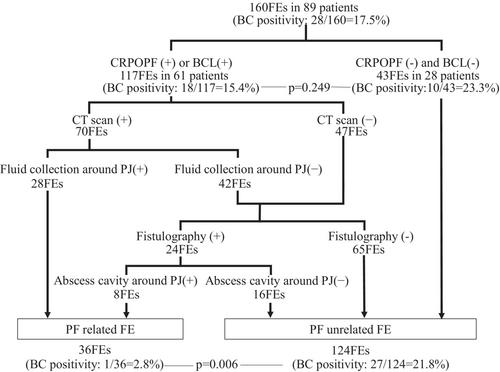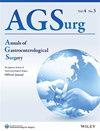Significance of blood culture testing after pancreatoduodenectomy
Abstract
Aim
The aim of this study was to clarify the significance of blood culture testing in the postoperative period of pancreatoduodectomy (PD), a highly invasive surgery.
Methods
Rates of blood culture sampling and positivity were investigated for febrile episodes (FEs) in patients who underwent PD (2016–2021). FEs were defined as body temperature of 38.0°C or higher occurring on or after the 4th postoperative day. Fever origin was diagnosed retrospectively, and FEs were classified as pancreatic fistula (PF)-related or PF-unrelated FEs. Factors correlated with blood culture positivity were explored.
Results
Among 339 patients who underwent PD, 99 experienced 202 FEs. Blood culture testing was performed on 160 FEs occurring in 89 patients. The sampling and positivity rates were 79.2% and 17.5%, respectively, per episode and 89.9% and 28.1%, respectively, per patient. Thirty-six FEs were classified as PF-related and 124 were classified as PF-unrelated FEs. The blood culture positivity rate was significantly lower in PF-related vs. PF-unrelated FEs (1/36 vs. 27/124, respectively, p = 0.006). The blood culture positivity rate was significantly higher in patients with cholangitis, catheter-related blood stream infection, and urinary tract infection than PF-related FEs. Multivariate analysis showed that blood culture positivity was negatively associated with PF-related FEs and positively associated with accompanying symptoms of shivering, Pitt Bacteremia Score, and preoperative biliary drainage.
Conclusions
Patients who underwent PD showed relatively high blood culture positivity rates. Based on these results, it may be possible to distinguish PF-related and -unrelated FEs.


 求助内容:
求助内容: 应助结果提醒方式:
应助结果提醒方式:


